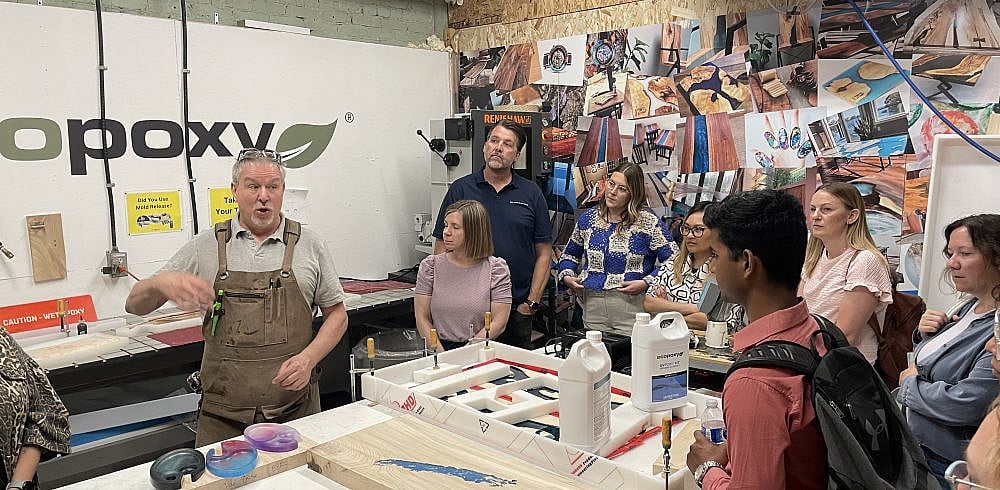
5-minute read
Post Contributed by Jilliane Miranda, Manager, Consumer Lending, SCU
Leadership Winnipeg Class of 2024-2025
Our day began with Board Governance Training led by Kevin Freedman, a seasoned governance consultant and founder of Governance Guru. Kevin, a Leadership Alumni (2013-2014), brings over 60 years of cumulative board experience to his work with nonprofits. His insights on governance provided us with a clear understanding of the role and purpose of a Board of Directors, as well as the expectations and responsibilities of board members.
Key Takeaways from Kevin’s Training:
- Foster Inclusion and Diversity: Create a culture where all voices are valued, and everyone feels heard.
- Respect the Process: Even if you didn’t vote for a decision, it’s essential to support the Board’s collective resolutions.
- Challenge Ideas, Not People: Focus on constructive problem-solving and avoid personalizing disagreements.
- Why Join a Board?: Understand the unique opportunity to make an impact and contribute to meaningful change.
With varying levels of board experience within our group, the session was particularly valuable for those considering joining a board or new to the role. Kevin’s training offered practical insights into what effective board membership entails, including the do’s and don’ts of contributing as a thoughtful and impactful board member.
Exploring Community Impact: A Visit to CJNU Radio
After lunch, we had the opportunity to tour CJNU, a nonprofit radio station dedicated to playing timeless classics and serving as a platform for storytelling and highlighting the work happening in our city. The visit underscored the power of nonprofits in shaping our community’s narrative and preserving its history.
Diving Deeper into DISC Profiles and the 12 Driving Forces
The afternoon brought a focus on self-awareness and leadership development with Dawna Atamanchuk, as we explored our DISC personal profiles. We went deeper into understanding the Behavioural Hierarchy and the 12 Driving Forces, which offer insight into our natural behavioral styles and what motivates us in our work and personal lives.
What Are the 12 Driving Forces?
These represent distinct motivators that influence decision-making, actions, and preferences. They are categorized into six primary motivators, each with two opposite extremes, reflecting our unique values and beliefs.
Why Is This Important?
Understanding the 12 Driving Forces can:
- Enhance self-awareness: Recognize what drives you and align your actions with your core values.
- Improve leadership: Tailor your communication and strategies to align with the motivations of your team.
- Strengthen relationships: Foster empathy and understanding by appreciating diverse perspectives.
This session provided actionable insights for applying these principles in both leadership and personal development. It left us better equipped to motivate and align with our teams’ individual and collective needs.
Final Thoughts
The day was a powerful combination of governance education, community impact, and self-reflection. From understanding the mechanics of effective board leadership to exploring the motivations that drive us, each session offered tools to become more effective and empathetic leaders.
Whether you’re stepping into a leadership role, considering board membership, or simply looking to grow as a leader, these lessons are invaluable for creating meaningful impact.




